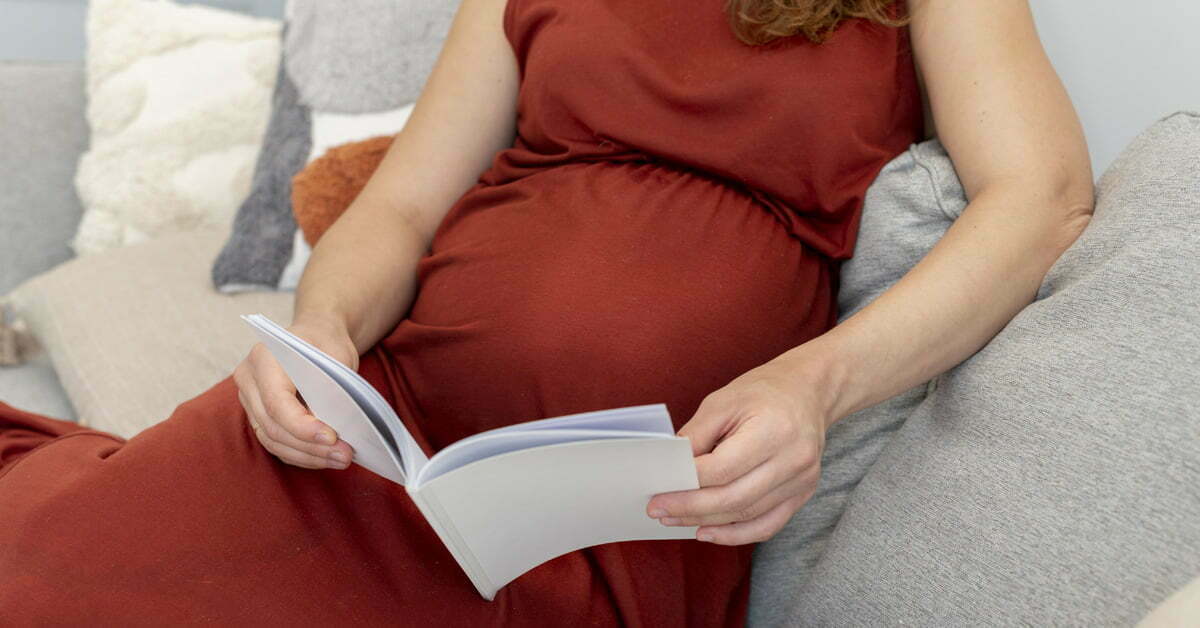
Pregnancy hormones can affect your body in several ways. While most people are familiar with common symptoms like morning sickness and fatigue, fewer may know about the connection between pregnancy and vision. The changes your body goes through during pregnancy can affect your vision, and while these changes are typically temporary, some can require immediate medical attention. Learning about how pregnancy can affect your vision, what symptoms to watch out for, and when to seek medical attention can help you prepare for these changes and take the necessary steps to preserve your eye health.
Does Pregnancy Affect Your Vision?

Hormonal changes in your body during pregnancy can affect your vision. In most cases, these changes are temporary and your vision will return to normal after you give birth or stop breastfeeding. However, in rare cases, pregnancy can cause more serious changes to your eye health because of complications your body may experience. Being aware of the signs and symptoms of more serious health concerns can help you know when it’s time to reach out to your medical provider or eye care specialist.
Why Does Pregnancy Affect Your Vision?
The most common cause of vision changes during pregnancy is hormonal fluctuations. This is because hormone changes can cause fluid retention throughout your body. For example, you may notice swelling in your joints and ankles due to fluid buildup during pregnancy. Your eyes can also experience fluid retention, which can increase the pressure in your eyes.
When your eyes develop abnormal pressure, it can cause your cornea to thicken, which can result in blurriness. This condition may also reduce your tear production and cause puffiness in your eyelids. These symptoms may also result in increased blurriness or discomfort from dry eyes.
Besides hormonal changes, some other pregnancy complications like gestational diabetes and pre-eclampsia can also affect your vision. Here’s what you need to know about these conditions and your eye health:
Gestational Diabetes
During gestation, your placenta may produce hormones that affect your body’s ability to balance its blood sugar. When this happens, you may develop a temporary form of diabetes called gestational diabetes. Uncontrolled, elevated blood sugar levels can cause damage to your eyes, resulting in permanent vision loss over time. For this reason, it’s important for you to monitor your blood sugar levels closely during pregnancy and to watch out for signs of gestational diabetes.
If you experience symptoms like persistent eye pain, vision loss, and discomfort, it’s important to schedule an appointment with your eye doctor. Additionally, if you’ve been diagnosed with gestational diabetes, you should get a diabetic eye exam. During this exam, the eye doctor will dilate your eyes to perform a thorough exam of your retina. This allows them to look for signs of retinopathy, which is a common complication of diabetes. Retinopathy occurs when the blood vessels in the backs of your eyes become damaged, such as from uncontrolled fluctuations in your blood sugar levels.
Pre-Eclampsia
If you experience significant changes to your vision during pregnancy, it could be a sign of a serious condition known as pre-eclampsia. This is a pregnancy complication that results in high blood pressure and high levels of protein in the urine. Developing pre-eclampsia can be dangerous because it can rapidly advance into eclampsia. This condition causes seizures and coma, which can be very dangerous for you and your baby. If you notice symptoms like sudden vision loss, light sensitivity, blurry vision, or the appearance of flashing lights, contact a medical provider immediately.
How Does Pregnancy Affect Your Vision?
Depending on the underlying cause of vision changes during your pregnancy, you may experience a range of symptoms. Here are some common ways pregnancy may affect your vision:
Blurriness
Blurriness is a common way pregnancy can affect your vision. Most of the time, this is a temporary change to your vision caused by fluctuating hormones and fluid retention. The degree of blurriness you experience may change throughout your pregnancy, but in most cases, it will go away after you give birth and stop breastfeeding.
Dry Eyes
Fluid retention during pregnancy can reduce your tear production and lead to uncomfortable dry eyes. This symptom is often more common during the third trimester of pregnancy. Although mild or moderate dryness is common during pregnancy, if you experience other symptoms like eye pain or spottiness in your vision, it could be a sign of gestational diabetes or pre-eclampsia. If you notice these symptoms, contact a medical provider.
Puffiness
Fluid buildup around your eyes can cause puffiness and some mild discomfort. This is common during pregnancy and results from fluid retention. Typically, this symptom doesn’t represent a serious condition, and you can use at-home remedies like a cold compress to relieve your discomfort.
What Can You Do if Pregnancy Affects Your Vision?
If you find that pregnancy is affecting your vision, there are some steps you can take to find relief and protect your eye health. Here are some tips to help you relieve your symptoms:
- Stay hydrated: Make sure you drink enough water, eat fruits and veggies with high water content, and avoid foods that are high in sodium to reduce water retention.
- Use over-the-counter eye drops: Over-the-counter eye drops can provide moisture and relieve dry eyes.
- Reduce visual strain: Give your eyes breaks throughout the day to reduce visual strain. If you wear reading or prescription glasses, make sure to use them to reduce the amount of work your eyes have to do during the day.
- Talk to your eye care provider: If you’re concerned about changes to your vision during pregnancy, it’s always recommended you contact your eye care provider. They can perform an assessment to rule out dangerous complications and recommend eye care products and strategies that suit your specific needs.
When Should You See an Eye Doctor or Specialist?
See your eye doctor or vision specialist if you have concerns about your vision during pregnancy. If changes to your vision cause you discomfort, you can work with your provider to relieve your symptoms. However, seek medical attention immediately from your doctor or the ER if you experience symptoms like:
- Sudden vision loss (even temporary vision loss).
- Persistent eye pain.
- Floaters or spots in your vision accompanied by a severe headache.
It’s common to experience vision changes during pregnancy. If you have questions or concerns about how your pregnancy may affect your vision, reach out to our specialists at Northeastern Eye Institute to schedule an appointment today.